Shiitake is a medicinal mushroom, which takes its name from shii - chestnut, and take - tree and means a mushroom that grows on a tree. Actually it also grows on hornbeam, oak and maple. Shiitake grows in Japan and China, but nowadays it is extremely common all over the world.
The shiitake mushroom is also known as the Emperor mushroom, because it has been known for its powerful healing properties since ancient times. It was during the Ming Imperial Dynasty that Shiitake became famous for its qualities. It is a curious fact that all the collected mushrooms of this kind went directly to the imperial court and so the valuable food was not known among the people. In the imperial court, shiitake was considered not only extremely beneficial for health, but also a powerful aphrodisiac.
The stem of the shiitake mushrooms is whitish to brownish in color, 3 to 5 cm long and up to about 1.3 cm thick. The flesh of the mushroom is white, and underneath the skin is brownish. It has a pleasant aroma. The fruiting body consists of a pod and a stalk, Shiitake plates are white, later turning gray-brown in color. The spores are smooth and white.
In China, Shiitake mushrooms are called the elixir of life. For more than 50 years, research has been done on the mechanism of action of this mushroom species and the proven benefits are many. Shiitake can be used not only to treat diseases, but also as an excellent prevention of health.
In Eastern folk medicine, shiitake mushrooms are a food that is believed to activate the blood, which as an expression sounds too simple, but hides in its meaning incredible health properties, the most popular quality of the mushroom being its anti-cancer effect.
Ingredients of Shiitake
Shiitake mushrooms are extremely rich in a number of valuable polysaccharides, lentinacin and lentinan. It contains proteins, essential amino acids, proteins, vitamins A, B1, B2, B12, as well as vitamins C, E and D. Shiitake are extremely rich in potassium, magnesium, calcium, phosphorus, iron, silicon.
However, special attention should be paid to the ingredient lentinan. It is actually a hydrocarbon that is believed to activate anti-cancer immune defenses.
Benefits of Shiitake
Shiitake mushrooms are credited with many health benefits. Shiitake has been proven to be a powerful immune stimulant that has an excellent antiviral effect. Shiitake has a powerful restorative effect, helping to fight chronic fatigue.
Undoubtedly, the most valuable property of Shiitake mushroom is its anti-cancer effect. Japanese doctors have long established that the ingredient lentinan has a strengthening effect on the human immune system and the fight against tumors. It has been proven that lentinan has a stimulating effect on immune cells, which is why they begin to produce interleukin, or the so-called tumor necrosis factor.
Shiitake mushrooms are believed to help lower cholesterol, regulate blood pressure and protect against heart attack and atherosclerosis. The mushrooms are used to improve the general health of the body. It is recommended against gallstones, joint pain, potency disorders, kidney and eye diseases. Shiitake are useful for hepatitis, infections, HIV.
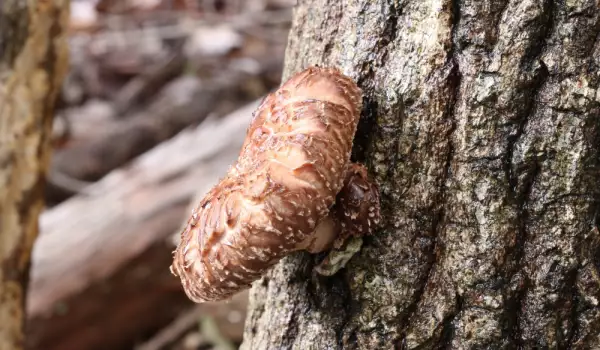
The high amount of iron in shiitake mushrooms makes them an extremely suitable food for vegetarians who may be deficient in this valuable mineral.
Shiitake mushrooms are extremely rich in copper and only consuming 100 g of them provides half of the recommended daily intake for an adult, which is extremely high and makes these mushrooms one of the best plant sources of copper. Copper is a mineral that works enviably with iron to form hemoglobin in red blood cells. Lack of copper can cause dangerous conditions such as anemia and even osteoporosis.
Shiitake mushrooms are rich in lentionine, a compound that prevents platelet aggregation. This means that shiitake are excellent for preventing thrombosis.
A broth from the stumps of the shiitake mushroom is believed to have been used by the ancient Chinese as a cure for diabetes and liver disease.
The use of shiitake to treat liver disease is not just a myth, because the ingredients of the mushroom have been shown to speed up the processing of cholesterol in the liver and have a protective effect on rats exposed to a lung-damaging dangerous chemical.
Compared to white mushrooms, shiitake mushrooms are 10 times more aromatic. This can be enhanced when they are dried and rehydrated in water. Although they still grow in the wild, China, Japan or America are making great efforts to cultivate them.
Shiitake mushrooms are known to stimulate the immune system and help fight many diseases. They provide important amounts of vitamins, minerals and enzymes and help to effectively reduce free radicals.
Several studies have shown over time that these mushrooms may even help to destroy cancer cells, indirectly, through the powerful effect that macrophages have on cells. They are responsible for identifying and neutralizing potential cancer cells in the body. Shiitake mushrooms stimulate macrophages and help them fight cancer cells.
Shiitake greatly supports the health of the cardiovascular system. They contain phytonutrients that prevent the formation of deposits on blood vessels and improve circulation.
They are a real energizer for the body, due to the large amount of vitamin B they contain. Vitamin B is also one that contributes to the hormonal balance of the body.
Shiitake mushrooms can provide quite a large amount of vitamin D, which is extremely useful when we spend most of the day in the office, away from sunlight. Vitamin D contributes to bone health, reduces the risk of heart disease, autoimmune diseases and increases the absorption of calcium and phosphorus.
Shiitake in cooking
Dried shiitake mushrooms are an amazing all-purpose seasoning that adds a deep umami flavor to dishes. The umami taste is characteristic of Asian cuisine, completely different from the familiar tastes of sweet, bitter, salty and sour. Dried mushrooms can be added to some cured meats, fish and aged cheeses.
Shiitake can be added to vegetable and meat soups, pasta, sauces, salad dressings, risotto, meat dishes. Like some other types of mushrooms, dried shiitake has a much stronger flavor than fresh ones. Before use dried mushrooms should be washed and soaked for about 20 minutes in warm water.
Shiitake has a porous structure, thanks to which it will quickly rehydrate. The water in which the mushroom has been should not be thrown away, since it has absorbed the flavors of the shiitake and can be used in cooking.
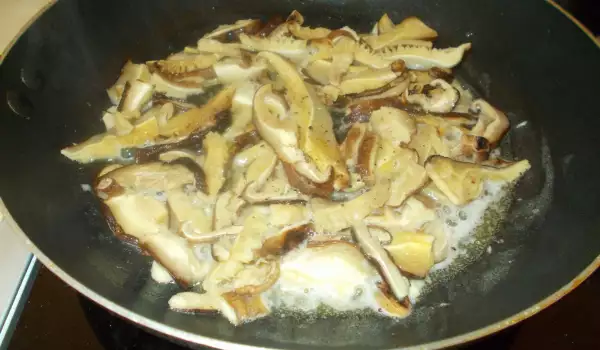
Recipes with shiitake mushrooms can be found at the given link on the site.
Shiitake intake
In addition to its edible mushroom form, Shiitake can be found in the form of tinctures and dry extracts, various nutritional supplements, immunostimulants, as well as some herbal preparations.
Powdered shiitake mushrooms can easily be introduced into the diet. Just add it to the cream of the mushroom soup or a glass of water. This way, you can take advantage of the properties of this superfood without complicating your menu too much.
It is recommended to use one or two teaspoons of shiitake mushroom powder every day. The powder can also be added to sauces, smoothies or used in a tea infusion.
When you buy dehydrated shiitake mushrooms, they should be firm, not moist. They are fine to keep in the fridge in a paper bag for up to a week. Dried, they can be stored for up to a year.
It is believed that shiitake mushrooms are completely safe and can be taken without worrying about drug interactions with other preparations. It can sometimes cause stomach discomfort. It is still not completely clear whether it is possible for pregnant and lactating women to intake the mushroom.
Regarding the daily dose, there are also no precisely established limits and it is best for consumers to read the instructions of the respective product containing shiitake. In most cases, between 6 and 10 g of dried mushroom per day or 1 to 3 g of dry extract (up to three times a day) are taken.
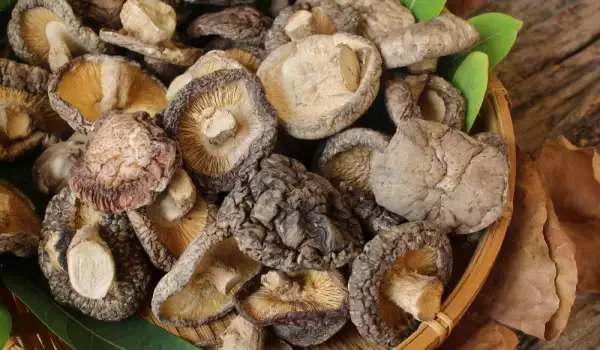
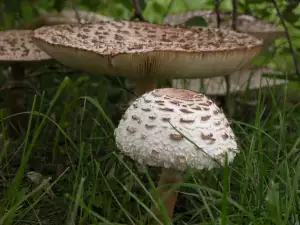
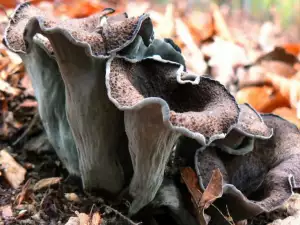
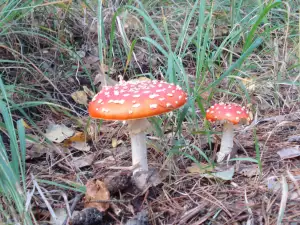

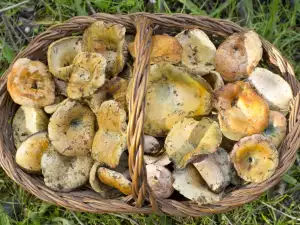
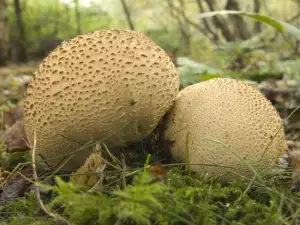
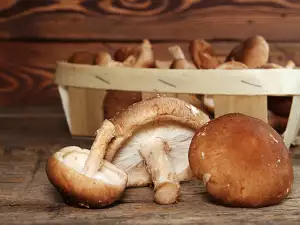
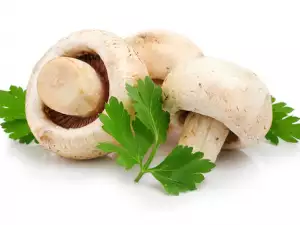
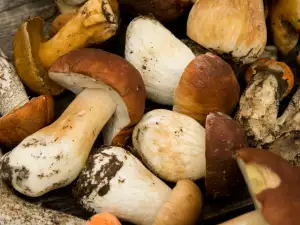
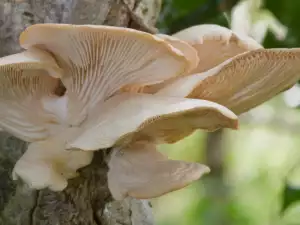


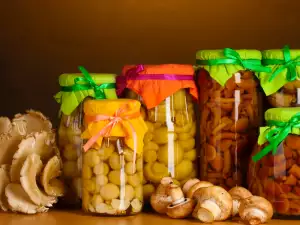




Comments